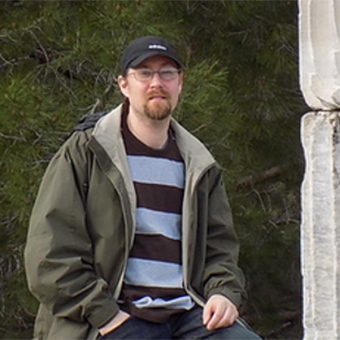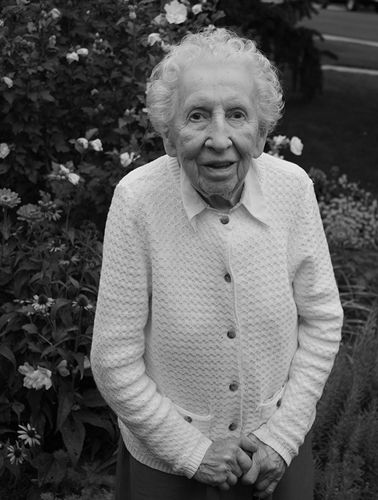Opportunity in unprecedented times
Poet-scholar Ida Fasel (CAS’31, GRS’45) finished writing the last of her 16 books at age 102, after earning a PhD and teaching university English for decades. The book, Milton on My Mind, is a collection of poems and essays about John Milton’s epic Paradise Lost. Fasel wrote Milton on My Mind, she notes in the introduction, “after years of living with him and teaching him, admiring him, sharing his search for spirit, intellectually and emotionally….”
That search for spirit informed her generosity to BU Arts & Sciences as well. In 2012, she left a bequest of $1.1 million to endow the Drapkin-Fasel Graduate Fellowship Fund in Judaic Studies, named in memory of her husband, Oscar A. Fasel; her parents, Lillian and Israel Drapkin; and her sister, Ruth Drapkin. The fellowships, which began in FY2015 and provide funding during the academic year, are administered by the Department of Religion but also support PhD students who specialize in Jewish studies in other departments through their affiliation with the Elie Wiesel Center for Jewish Studies.
Today, Arts & Sciences has extended the spirit of Fasel’s transformative gift even further: it has awarded summer stipends of $5,000 each to three graduate students whose jobs and plans for research and coursework vanished because of the pandemic.
“Usually our graduate students go away and do summer research or have jobs lined up,” says Michael Zank, director of the Elie Wiesel Center. “But that was not the case this year. Fortunately, this fund enabled us to support them at this very unusual time.”
Scott Chase (STH’15, GRS’26,’26) and Sara Boston (GRS’26,’26) are two of the grateful recipients.
 Chase studies the material culture—the physical objects, resources, and spaces—of religious movements in early Roman Israel. These include artifacts such as the Dead Sea Scrolls, deeds detailing the economics of slavery, and mansions in the elite quarter of ancient Jerusalem.
Chase studies the material culture—the physical objects, resources, and spaces—of religious movements in early Roman Israel. These include artifacts such as the Dead Sea Scrolls, deeds detailing the economics of slavery, and mansions in the elite quarter of ancient Jerusalem.
With a master’s degree in archaeology, he’s participated in five excavations in Northern Israel and planned to return this summer. “With the travel ban, that’s impossible now,” he says. Instead, thanks to the Drapkin-Fasel award, he will be continuing his research on the geography and landscape depicted in ancient texts and studying modern Hebrew online through Hebrew College, in Newton.
“I couldn’t have done either without these funds,” he says. “It’s not easy to get support for academic inquiry into religion and the ancient world: it’s not something that benefits our economy, for example, in the short term. But it produces knowledge and progress for humanity in the long term in an area that is very important to many people. The stipend will enable me to complete my degree more quickly and build a much more robust portfolio of research.”
 Sara Boston echoes that sentiment. She concentrates on Judaism in the Second Temple period, with an emphasis on sectarianism and the role of Judaea in the broader Greco-Roman world. To read the necessary literature and speak to scholars in her field, she must be proficient in several languages, including ancient and modern Hebrew, ancient Greek, and modern German. The award will help her do that. She, too, will be taking modern Hebrew online through Hebrew College, and pursuing ancient Greek and modern German on her own.
Sara Boston echoes that sentiment. She concentrates on Judaism in the Second Temple period, with an emphasis on sectarianism and the role of Judaea in the broader Greco-Roman world. To read the necessary literature and speak to scholars in her field, she must be proficient in several languages, including ancient and modern Hebrew, ancient Greek, and modern German. The award will help her do that. She, too, will be taking modern Hebrew online through Hebrew College, and pursuing ancient Greek and modern German on her own.
“Focusing on the ancient languages will help me in everything I do for the rest of my life,” says Boston. “And studying the modern languages will enable me to communicate more effectively when, for example, I go to Israel.” There are immediate benefits too, she says. “Being able to read academic articles in these languages will help me pass my language exams, which will allow me to start studying for my comprehensive exams. So the award helps with direct requirements, with indirect requirements, and with my skills. I am so thankful for this opportunity.”
